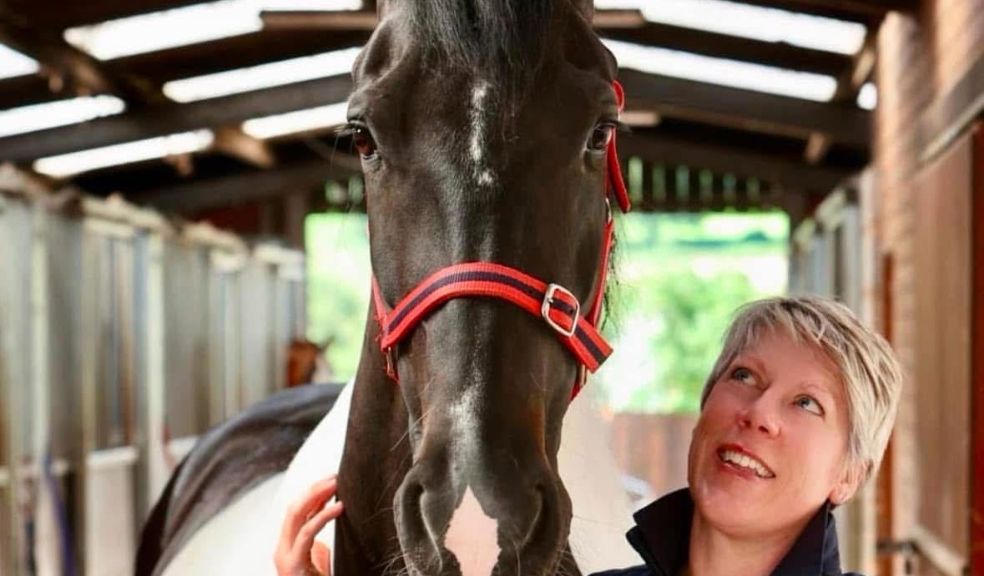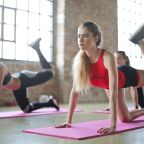
Stronger for Longer: Rethinking Sport Through the Menopause Lens
A new study by advanced UKCC Level 4 coach, sport development consultant, and researcher, Kathryn Howard, looks at the impact of the menopause on womens’ participation in sport.
The ‘Riding Through Change’ project explored how emotional, physical, and psychological symptoms associated with menopause impact women’s participation in equestrian activity. It also examined the role of the coach in responding to these challenges, and what women themselves identify as necessary to sustain their involvement — from empathetic support to broader structural changes that promote inclusion and longevity in the sport.
While the project focused primarily on equestrianism, many of the finding are applicable across a range of sports. Whether it’s riding, running, or refereeing, women in their 40s and 50s often face a crossroads in their sporting journey. The physical, emotional, and psychological shifts that come with perimenopause and menopause can shake confidence and change how women experience their sport.
The research explored not only how many women were affected, but also how they felt, why they disengaged, and what meaningful support could look like from coaches and clubs.
Hundreds of women offered their voices through the study, sharing honest, often emotional reflections about how their experience of sport was shifting. Their message was consistent: confidence was diminishing, energy fluctuated, and they felt increasingly invisible in their sporting communities.
As confidence diminishes, , motivation to stay involved can quietly erode, not because the passion has gone, but because the environment no longer seems to include who they are now. But with better awareness, inclusive coaching, and recognition of this life stage, stepping away doesn’t have to be the default path.
Women in the study made it clear they’re not asking for special treatment. They want:
- Coaches who understand how this life stage can impact training and confidence
- Systems that view midlife as a continuing phase, not a final one
- Spaces where they can stay involved — without judgment or invisibility
77% of participants in the study believe governing bodies should provide stronger menopause policy and support. 83% want menopause awareness raised in their sport. The research is already informing national coach CPD programmes, has featured in recent podcast episodes, and was presented at the Hartpury Research Conference in May this year.
Midlife women are not a niche group or a fading demographic — they are a vital, vibrant force in sport. Yet too often, the menopause transition quietly sidelines them. Not by intention, but by omission. This research doesn’t just highlight a problem — it offers a path forward. Women have told us, clearly and consistently, what they need: coaches who listen, systems that adapt, and sporting cultures that recognise this stage of life not as an end, but as a turning point
When women leave, sport doesn’t just lose participants — it loses mentors, leaders, and knowledge. Midlife women often carry decades of experience, insight, and empathy that enrich sporting communities and help shape the next generation. Retaining that expertise is not only respectful — it’s strategic. Remaining active through midlife is not a side issue — it’s a public health priority, a wellbeing issue, and a powerful act of inclusion. Sport and activity should be places where women feel they still belong, still matter, and still have something to contribute.
Because when women stay in the game, everyone wins.
Supporting women through midlife isn’t a luxury — it’s a necessity if we are serious about inclusion, participation, and wellbeing. This is not about lowering standards. It’s about raising our awareness. If we want stronger, more sustainable sport and active communities, we must build systems where women can remain, return, and thrive. Sport needs midlife women — and with the right support, midlife women can stay active in sport for longer.
About the 'Stronger for Longer' Author
Kathryn Howard is an advanced UKCC Level 4 coach, sport development consultant, and researcher. She brings two decades of experience across performance sport, education, and senior leadership, including strategic roles in operations, finance, and governance. Kathryn holds an MSc in Professional Coaching in Sport and Exercise from the University of Gloucestershire, where her distinction-level dissertation focused on menopause and participation. She was named Advanced Applied Psychology Coach of the Year 2024 by Centre 10 and continues to support national coaching programmes, para-sport development, and organisational consultancy. She is also an active competitor in British Carriage Driving




